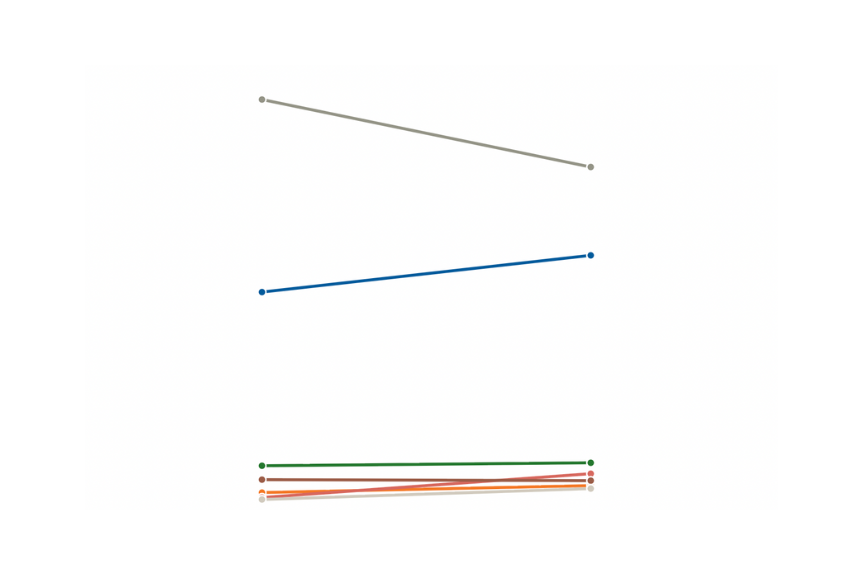Tide Turns in El Salvador with FMLN Win
Tide Turns in El Salvador with FMLN Win
Leftist candidate Mauricio Funes won the March 15 election, unseating the ruling party by defeating Rodrigo Ávila at the polls. Ávila argued that Funes will mimic Venezuela's Chávez, but Funes said he looks to Brazil's Lula as an example.
Updated March 16, 2009 - Salvadorans headed to the polls on March 15, electing Mauricio Funes as their next president and ending the long hold on power of the ruling party. Voters had to choose between the governing Alianza Republicana Nacionalista (ARENA) party candidate Rodrigo Ávila and Funes of the opposition Farabundo Martí National Liberation Front (FMLN). Funes could claim over 51 percent of the vote with 90 percent of ballots counted.
Polls and international media forecasted that Funes and the FMLN would unseat ARENA, which has held power since 1989. Ávila warned that a Funes victory would bring in a government similar to that of Venezuelan President Hugo Chávez. But Funes said his political platform uses Brazilian President Luiz Inácio Lula da Silva as point of reference rather than Chávez. A former television journalist, Funes has long been outspoken critic of the government. The FMLN, formerly Marxist guerillas, nominated him in September of 2007. Since then he has attempted to calm critics who point to the leftist roots of his party. He said that, as president, he would not join regional agencies such as the Bolivarian Alternative for the Americas if doing so would threaten bilateral relations with the United States.
Ávila, a former chief of the national police, closed his campaign with a massive rally at the Cuscatlán Stadium in San Salvador shouting the slogan “Country yes, Communism No.” In an interview with Univision’s Jorge Ramos, Ávila extolled the economic improvements gained under two decades of ARENA rule. He also defended his record as a police chief in the 1990s. Ramos also interviewed Funes a week earlier.
The state of the economy and security stood as top priority issues in the election. El Salvador has the second-highest homicide rate in the world after Iraq, reports the Miami Herald in an article about Salvadoran gangs. The Economist Intelligence Unit predicts a marked slowdown in the country’s GDP growth through 2010 and warns that, “regardless of the final outcome in the presidential election, no party will have an outright majority in Congress, complicating policy implementation."
The National Democratic Institute prepared a report on January legislative elections as well as the March 15 presidential elections. According to their data, ARENA had outspent the FMLN through January 18, with the former accounting for 65 percent of campaign spending and the latter just 19 percent. In the January election, the FMLN won a plurality of votes in the Legislative Assembly by winning 35 out of 84 seats. However, ARENA won the mayoralty of San Salvador, ending over a decade of FMLN control of the capital.
Some worried over the role Washington would play in this election, given past U.S. involvement in Salvadoran politics. A Boston Globe op-ed recalls the country’s 2004 election, when the Bush administration drummed up fears by implying that an FMLN victory could result in a change in migratory status for Salvadorans living in the United States. According to the U.S. State Department, Salvadorans working in the United States sent $3.8 billion in remittances in 2008, benefiting more than 22 percent of the population. As expected, in December the U.S. Citizenship and Immigration Services bureau extended the Temporary Protected Status for Salvadorans until September 2010.
Still, over 200 American academics wrote to Secretary of State Hillary Clinton asking for a U.S. government statement of impartiality. On Friday, the U.S. State Department's top envoy for the Western Hemisphere Tom Shannon stressed Washingon's neutrality in terms of the election's outcome. "We are committed to free and fair elections in El Salvador. And we've also made it very clear that we will work with whomever the Salvadoran people elect," he said.
Angus Reid Global Monitor offers a timeline and background information on the election.








